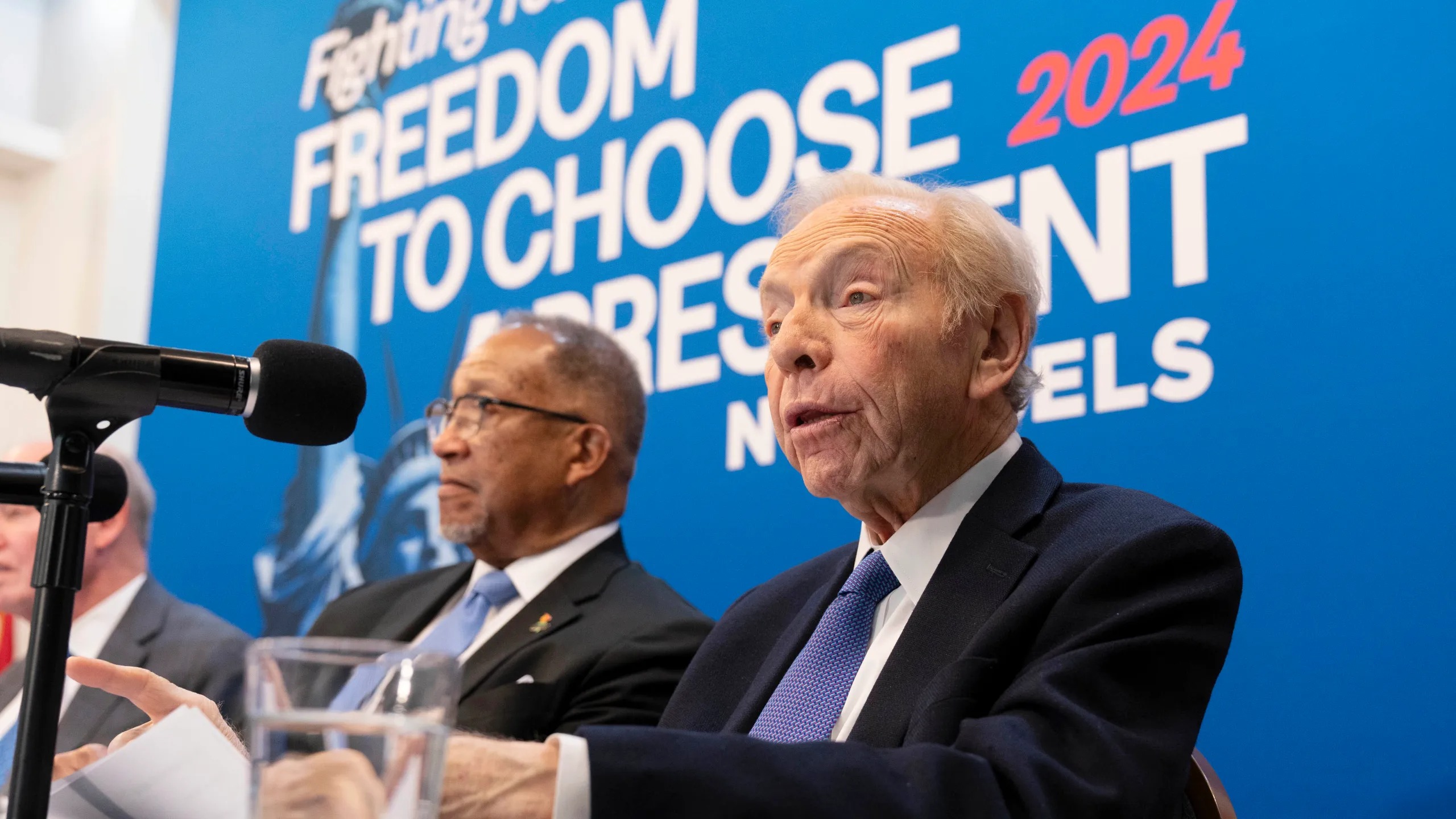After careful consideration, the third-party presidential movement No Labels has decided to field a candidate for the 2024 election. This decision was reached during an online convention attended by 800 delegates nationwide.
Although the group has not yet named its presidential and vice-presidential nominees, it plans to announce its candidate selection process on March 14.
Despite initial interest from several potential candidates, including former U.N. Ambassador Nikki Haley and former Maryland Gov. Larry Hogan, both have declined to run under the No Labels banner.
Haley suspended her campaign for the Republican presidential nomination following former President Donald Trump’s strong performance in Tuesday’s GOP primary map.

No Labels Committee (Credits: WXYZ)
Hogan, on the other hand, has opted to seek the Republican nomination for the U.S. Senate from Maryland. Additionally, retiring Democrat West Virginia Sen. Joe Manchin has confirmed that he will not run for president.
No Labels perceives an opportunity to offer a bipartisan ticket in light of polls indicating that many Americans hold unfavorable views of both President Joe Biden and Trump.
However, some of President Biden’s supporters are concerned that No Labels could siphon votes away from him in key battleground states.
Critics have also expressed skepticism about the group’s lack of transparency regarding its donors and decision-making processes. Although No Labels has been in discussions with several potential candidates, their names have not been disclosed.
The group has amassed funding from undisclosed sources, including former Republican donors who have grown disenchanted with the party’s direction during the Trump era. No Labels has also been actively working to secure ballot access in every state.
The decision to field a candidate comes after a series of high-profile figures declined to run, suggesting that the path to victory for a third-party candidate remains challenging.
However, No Labels remains committed to its mission of promoting bipartisan cooperation and offering an alternative to voters dissatisfied with the current political landscape.























